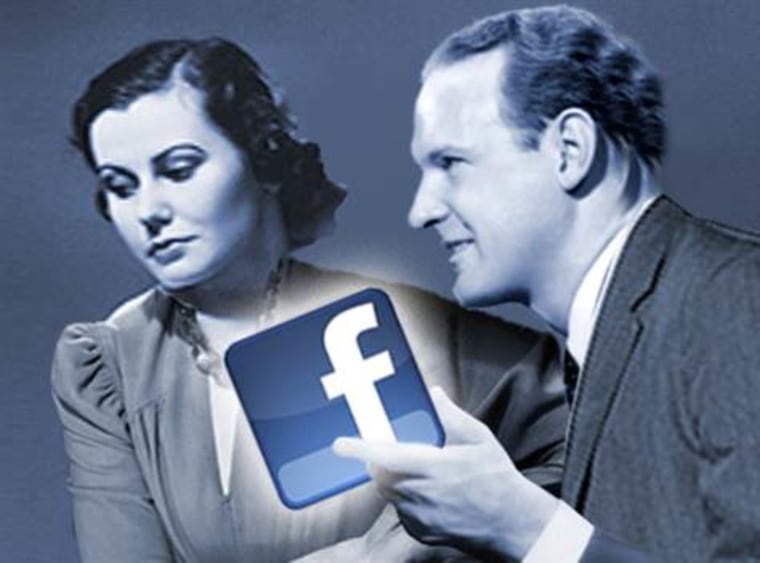In its rationale for granting 13- to 17-year-old Facebook users the ability to share their posts with everyone, and to be followed by anyone, Twitter-style, the social network explained that teens are "among the savviest people using social media."
Facebook presented this as a gift to its young users on Wednesday, noting in the announcement that "whether it comes to civic engagement, activism, or their thoughts on a new movie, they want to be heard." The network illustrated the potential of this freshly unleashed enthusiasm in a triptych of status updates. One "savvy" teen crows about a just-completed 10K for charity, another announces his drive to help the hungry and a third asks for weekend movie suggestions. Who wouldn't want to share that with the world?
Yet what the world’s largest social network neglects to mention is the gift it's giving itself: More targets for marketers. Targets with money to burn — either their own or their parents' — and without the pre-frontal cortex development to filter the cloying "buy me or die" siren song of advertising.
"This update does not change anything about how ads are shown on Facebook, either to teens or others," a Facebook spokesperson told NBC News. "Currently, sponsored stories are only shown to friends, regardless of the audience of your post."
Still, what's a "social media savvy teen" to do? For that matter, what does that even mean? When NBC News asked Facebook to clarify what, exactly, it's referring to when it heralds the social media savvy of teens, a company spokesperson pointed us to a recent study from the Pew Internet & American Life Project:
Teens are sharing more information about themselves on social media sites than they have in the past, but they are also taking a variety of technical and non-technical steps to manage the privacy of that information. Despite taking these privacy-protective actions, teen social media users do not express a high level of concern about third-parties (such as businesses or advertisers) accessing their data; just 9 percent say they are "very" concerned.
Presumably Facebook's paying customers — the ad buyers — like those odds.
"'Savvy' is an incredibly annoying marketing term," Susan Linn, co-founder and director of the Campaign for a Commercial-Free Childhood, told NBC News. "Marketers use 'savvy' all the time. Kids are familiar with a lot of different marketing and a lot of different brands, and they know how to use technological, that's incredibly clear," said Linn, who is also a psychiatry instructor at Harvard Medical School. However, she adds, "their judgment is still isn’t adult and they’re susceptible to manipulation."
Manipulation from, say, advertisers. Linn notes that "the purpose of marketing is to create longing so that your targets will by your products, that the things you buy will make you happy. That's the message kids are getting, and it's a false message."
Observing Facebook's new opportunity to teens presented as a freedom rather than an opportunity to provide more user info to marketers, Linn said, "I do believe that Facebook’s justification for this move is disingenuous."
Indeed, whether humble-bragging about your charity 10K or grilling your FB besties for movie suggestions, this is all marketing gold to targeted advertisers, if they can get to it. Third-party apps and marketers can get around some content privacy protections — especially if one friend grants the marketer permissions, then shares content with other friends — but keeping teens on mandatory lock-down meant a lot of kid info was off limits. Now, everything teens choose to post publicly on the world’s largest social network is open season.
All public posts can be compiled, combined and cross-examined with info shared between you and your Facebook friends, to create a frighteningly accurate profile of you, and what you're likely to buy.
We're reminded again not just that this huge free social network is operating by a publicly traded company that makes most of its money from advertisers, but that, as Sen. Al Franken, D. -Minn., once famously pointed out, "you are their product."
In 2012, Franken noted that the more we come to depend on such "free" services that make the bulk of their money via user profiles, allowing third parties to target ads using the extensive personal information stored there, "the less incentive (such companies) have to respect your privacy."
Beyond the quest for revenue, this may have been a competitive move for Facebook. One need look no further Facebook's 10-K report last march, in which the social network admitted losing traction with the valuable youth market. "We believe that some of our users, particularly our younger users, are aware of and actively engaging with other products and services similar to, or as a substitute for, Facebook."
And as stated in its freedom declaration to teens, "while only a small fraction of teens using Facebook might choose to post publicly, this update now gives them the choice to share more broadly, just like on other social media services."
But in granting the public visibility teens have on other sites, it does little to address other issues such as cyberbullying and sexual predation, other than directing parents and teens to its Family Safety Center.
And what about the littlest would-be Facebook users? Currently, the Children's Online Privacy Protection Act (COPPA) makes it hard for the social network, and other websites that collect personal information, to allow users younger than 13 to join. But in 2011, Facebook founder and Zuckerberg told attendees at a summit on innovation in education that, "My philosophy is that for education you need to start at a really, really young age." One way to make that happen, Zuckerberg suggested, is to lift some restrictions and make it easier for kids 12 and under to join Facebook.
And so it begins.
Helen A.S. Popkin goes blah blah blah abut the Internet. Tell her to get a real jobon Twitter and/or Facebook.
